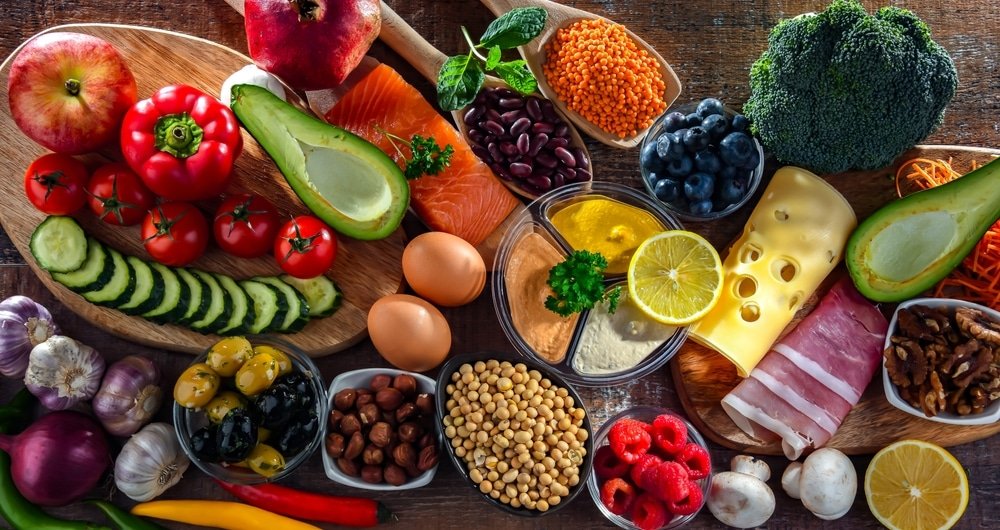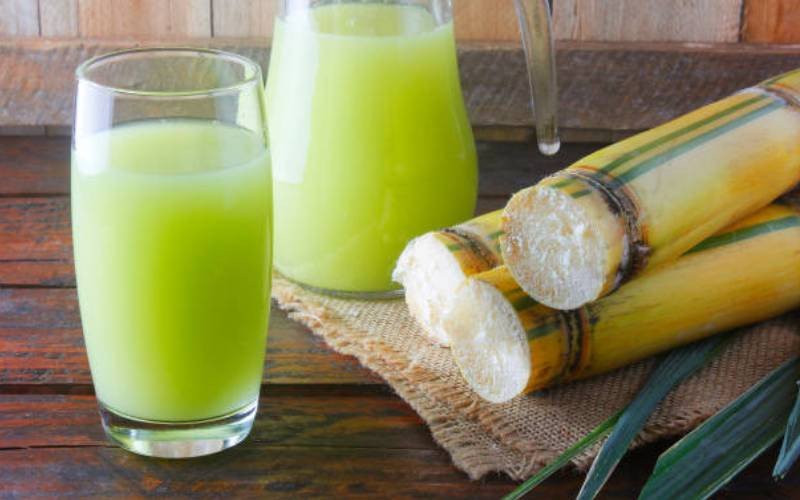Menopause—typically diagnosed after you’ve gone 12 months without a period—can occur in your 40s or 50s, but the average age is 51 for women in the United States.
For many women, menopausal weight gain is a real issue. (Which is normal!)
Factors that contribute to menopausal weight gain include:
- Hormones
- Age
- Genetics
- Lifestyle (active vs. sedentary)
But fear not! With a more active lifestyle and the right diet, you can combat the negative effects of menopause.
Here are 6 nutrients experts suggest incorporating into your diet to help you lose that unwanted menopausal weight gain.
1. Vitamin D
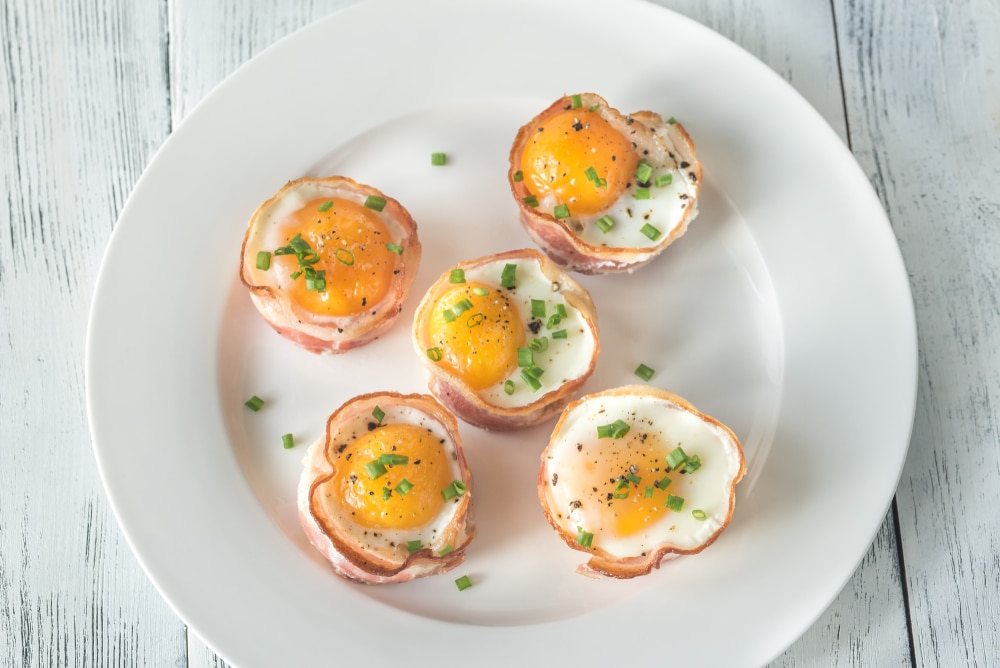 Photo Credit: Shutterstock
Photo Credit: Shutterstock
Mounting studies show that vitamin D can aid in weight loss. Research has found that those with higher body fat tend to have lower blood levels of vitamin D compared with those of a healthier weight.
Vitamin D comes with an array of other benefits, including:
- Keeping your immune system healthy
- Maintaining strong bones and teeth
- Helping your body absorb calcium and phosphorus
- A decreased risk of colorectal and bladder cancer
You can use a vitamin D supplement or try to eat more foods rich in vitamin D, including:
- Salmon
- Swordfish
- Tuna
- Orange juice (fortified with vitamin D)
- Dairy and plant milks fortified with vitamin D
- Sardines
- Beef liver
- Egg yolks
- Fortified cereals
It is recommended for people 50 to 70 years old to get 15 micrograms of vitamin D daily, and those over 70 should get 20 micrograms daily (800 IU). Some people who take supplements may take 5,000 IU or more daily, depending on deficiency levels and how their bodies absorb vitamin D.
2. Calcium
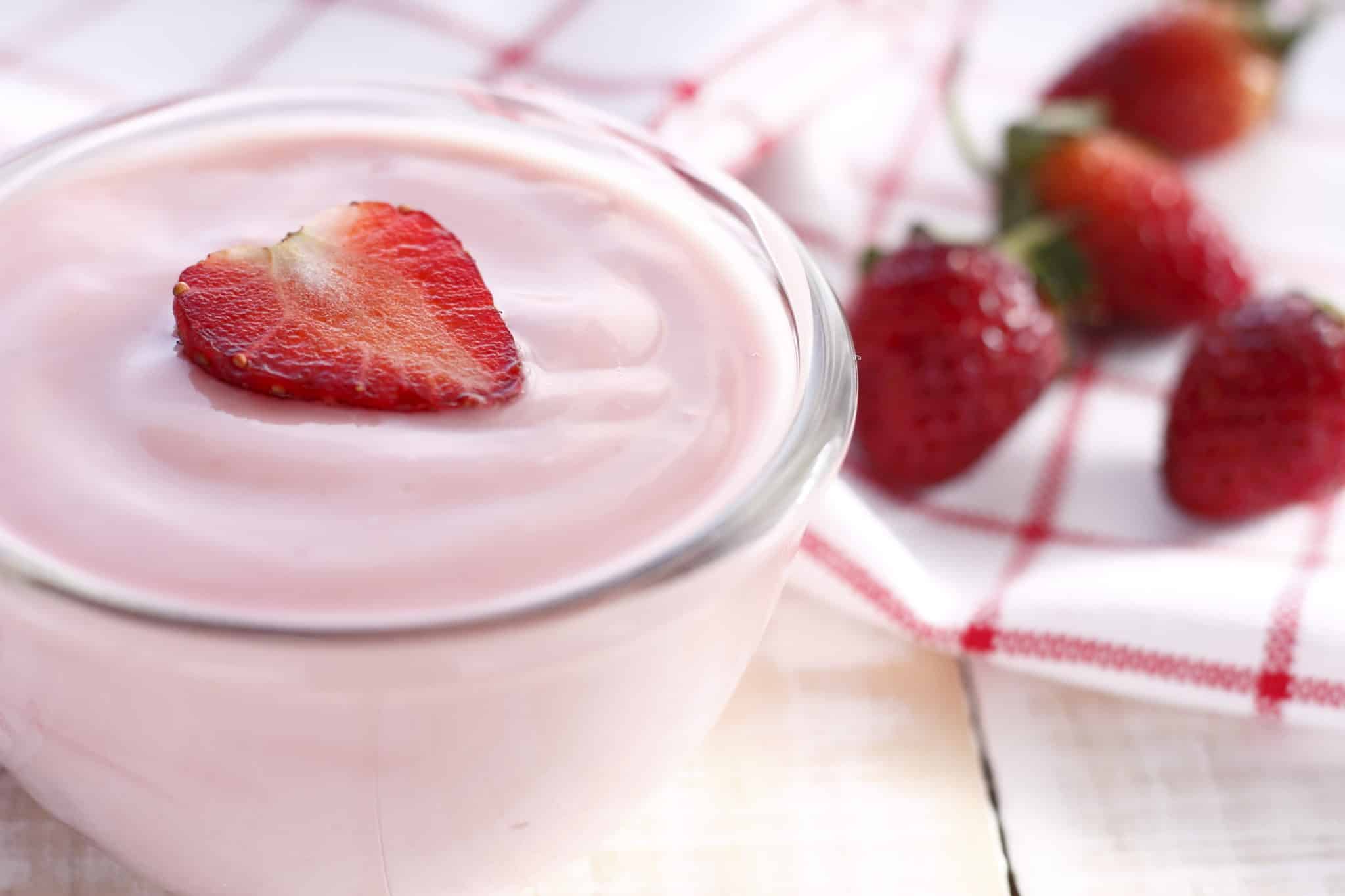 Photo Credit: Shutterstock
Photo Credit: Shutterstock
Calcium is known as the bone health supervitamin. With age (and menopause) comes the breaking down of bone tissue faster than it can be built, which makes this mineral vital for maintaining the normal functioning of muscles and nerves.
Some common calcium-rich foods include:
- Dairy and fortified plant-based milks (almond, soy, and rice)
- Cheese
- Yogurt
- Calcium-fortified orange juice
- Edamame
- Almonds
- Leafy greens (collard, mustard, turnip, kale, bok choy, spinach)
Because menopause leads to increased bone loss, menopausal women are more at risk of developing osteoporosis.
But there’s good news: research suggests that higher calcium intake, in addition to vitamin D, may be associated with lower body weight and better metabolic health.
The daily recommended calcium intake for women over 50 years of age is 1,200 milligrams.
3. Magnesium
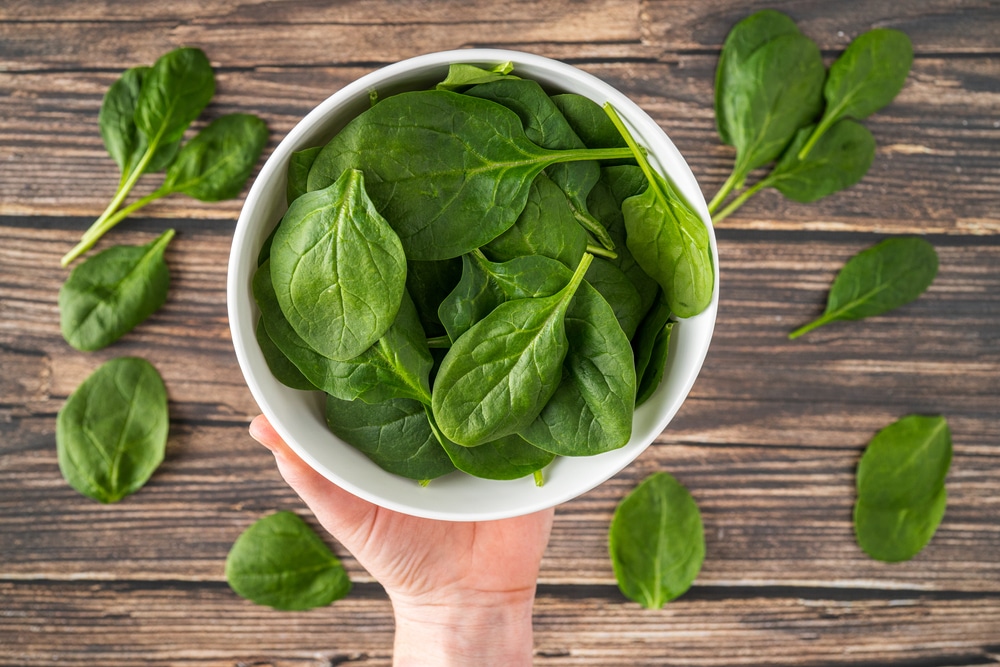 Photo Credit: Shutterstock
Photo Credit: Shutterstock
During menopause, magnesium helps keep your bones strong and combats your increased risk of osteoporosis. It can also improve sleep, support heart health, and reduce your risk of depression.
Three of the most common types of magnesium taken as supplements include:
- Magnesium Glycinate: Helps with high blood pressure, type 2 diabetes, migraines, bone health, serotonin levels, and depression
- Magnesium Oxide: Can be used for heartburn, sour stomach, acid indigestion, and constipation
- Magnesium Citrate: Commonly used as a short-term laxative
Research shows that higher magnesium intake helps better control insulin resistance and glucose blood levels—two factors that can contribute to weight gain.
Food sources containing magnesium include:
- Dark leafy greens such as spinach, collard greens, and kale.
- Nuts and seeds such as cashews, peanuts, and pumpkin seeds.
- Fatty fish such as mackerel, salmon, halibut, and tuna.
- Edamame.
- Bananas.
- Avocadoes.
- Brown rice.
- Non-fat or low-fat Greek yogurt.
The recommended daily magnesium intake for women over 50 years of age is 320 milligrams.
4. B Vitamins
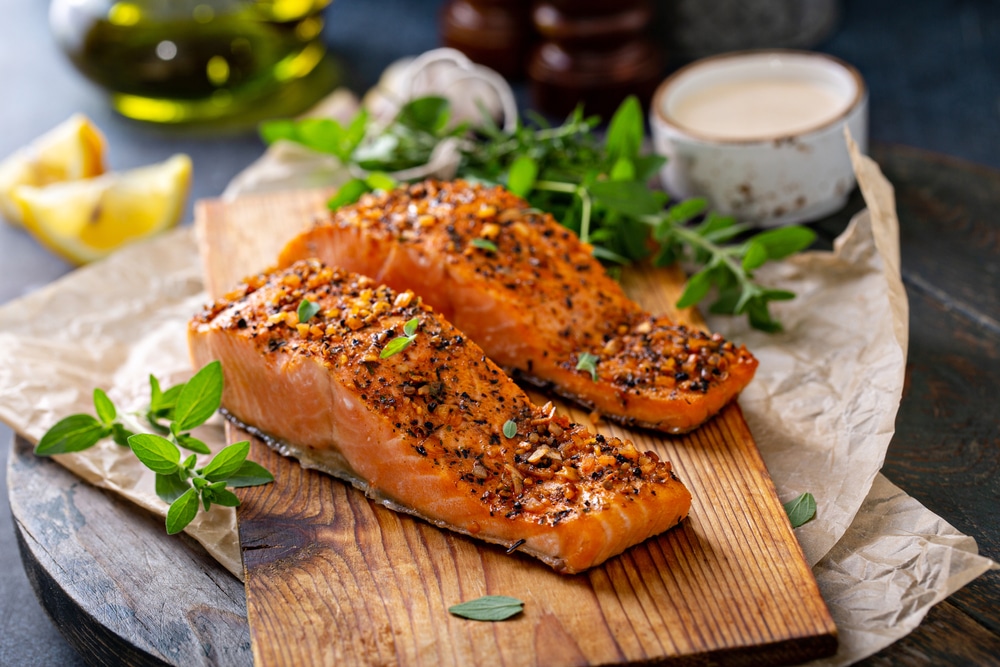 Photo Credit: Shutterstock
Photo Credit: Shutterstock
B vitamins are water-soluble, incredibly powerful, and full of health benefits—especially during menopause!
For menopausal women, studies have shown great benefits from vitamin B intake. Here are some of the findings:
- Vitamins B6 and B12 may help support cognitive function, decrease your risk of dementia, and improve bone mineral density.
- Vitamin B6 may lower the risk of depression in older adults, including those going through menopause.
- Vitamin B9 (also known as folate) may help reduce the frequency and severity of hot flashes.
As for menopausal weight gain? Some studies suggest adequate vitamin B12 levels may be associated with a lower risk of weight gain and obesity.
Foods rich in B vitamins include:
- Beef liver
- Oats
- Milk
- Yogurt
- Almonds
- Chickpeas
- Beef liver
- Tuna
- Potatoes
- Bananas
- Chicken
- Eggs
- Spinach
The daily recommended B12 intake for women over 50 is 2.4 micrograms.
5. Omega-3s
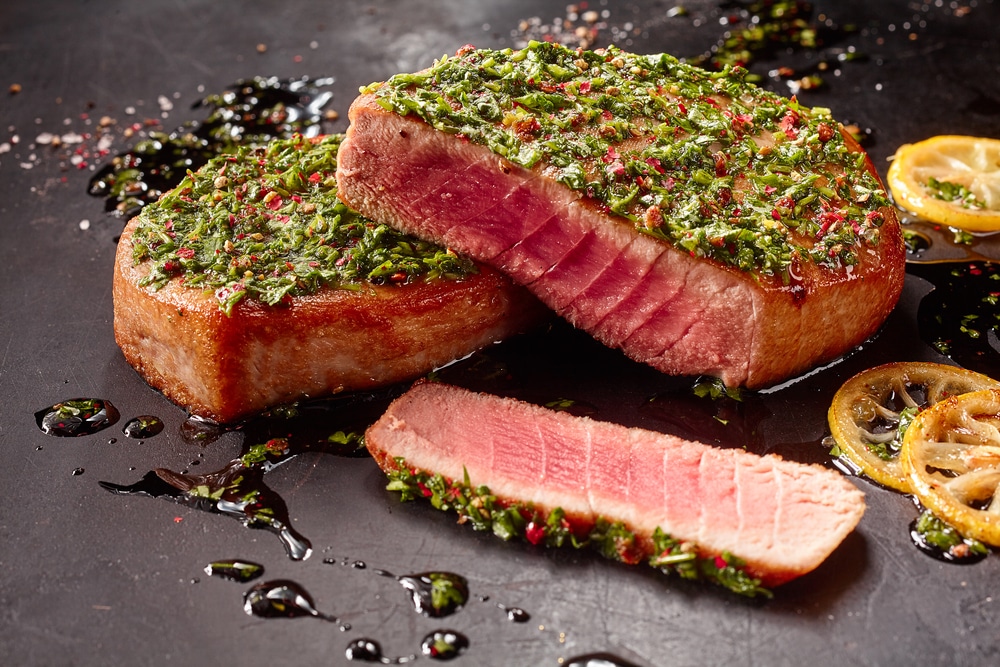 Photo Credit: Shutterstock
Photo Credit: Shutterstock
Omega-3 fatty acids are important for regulating blood clotting and inflammation. They have been shown to help prevent heart disease and stroke and may help control lupus, eczema, and rheumatoid arthritis.
Some of the main food sources of omega-3 fatty acids include:
- Ground flaxseed
- Edamame
- Walnuts
- Mackerel
- Salmon
- Herring
- Anchovies
- Whitefish
- Tuna
Omega-3 fatty acids are also thought to help with menopause, in particular. Some research suggests they may reduce the symptoms of major depressive disorders and hot flashes in menopausal women. It also suggests that fish oil, a type of omega-3 supplement, may also burn fat and help with weight loss—thus helping with menopausal weight gain.
The recommended daily omega-3 intake for women is 1.1 grams (1100 milligrams).
6. Vitamin C
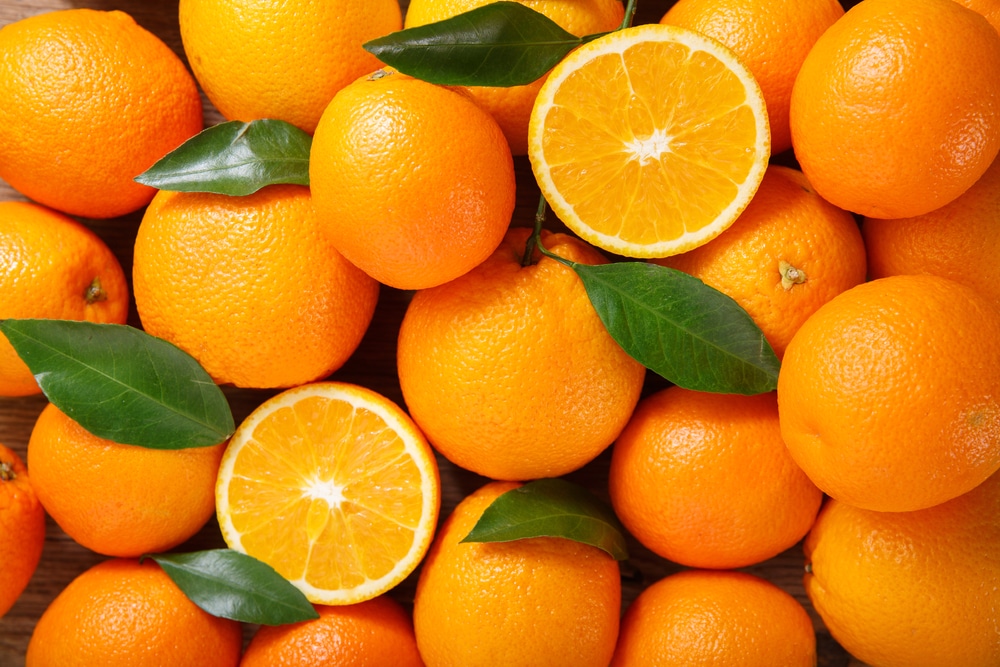 Photo Credit: Shutterstock
Photo Credit: Shutterstock
Vitamin C may be the most well-known supplement people take—and for good reason!
Some of the benefits provided by vitamin C include:
- Boosting your immune system and energy levels
- Reducing inflammation
- Decreasing the severity of cold symptoms
- Supporting brain cell functions
- Reducing the risk of cardiovascular disease
Vitamin C is water-soluble (meaning your body uses the amount it needs and rids itself of any excess through urine) and aids in collagen production. Moreover, those who are deficient in vitamin C may be more resistant to fat loss.
You can take a vitamin C supplement or eat vitamin C-rich foods, including:
- Bell peppers (especially red)
- Red and green chili peppers
- Dark green leafy vegetables (kale, mustard greens, brussels sprouts, broccoli)
- Potatoes
- Citrus fruits
- Guava
- Kiwis
- Strawberries and blackberries
- Lemon and limes
The recommended daily vitamin C intake is at least 75 mg for women.
14 Health Benefits of Cucumbers (And a Few Refreshing Recipes)
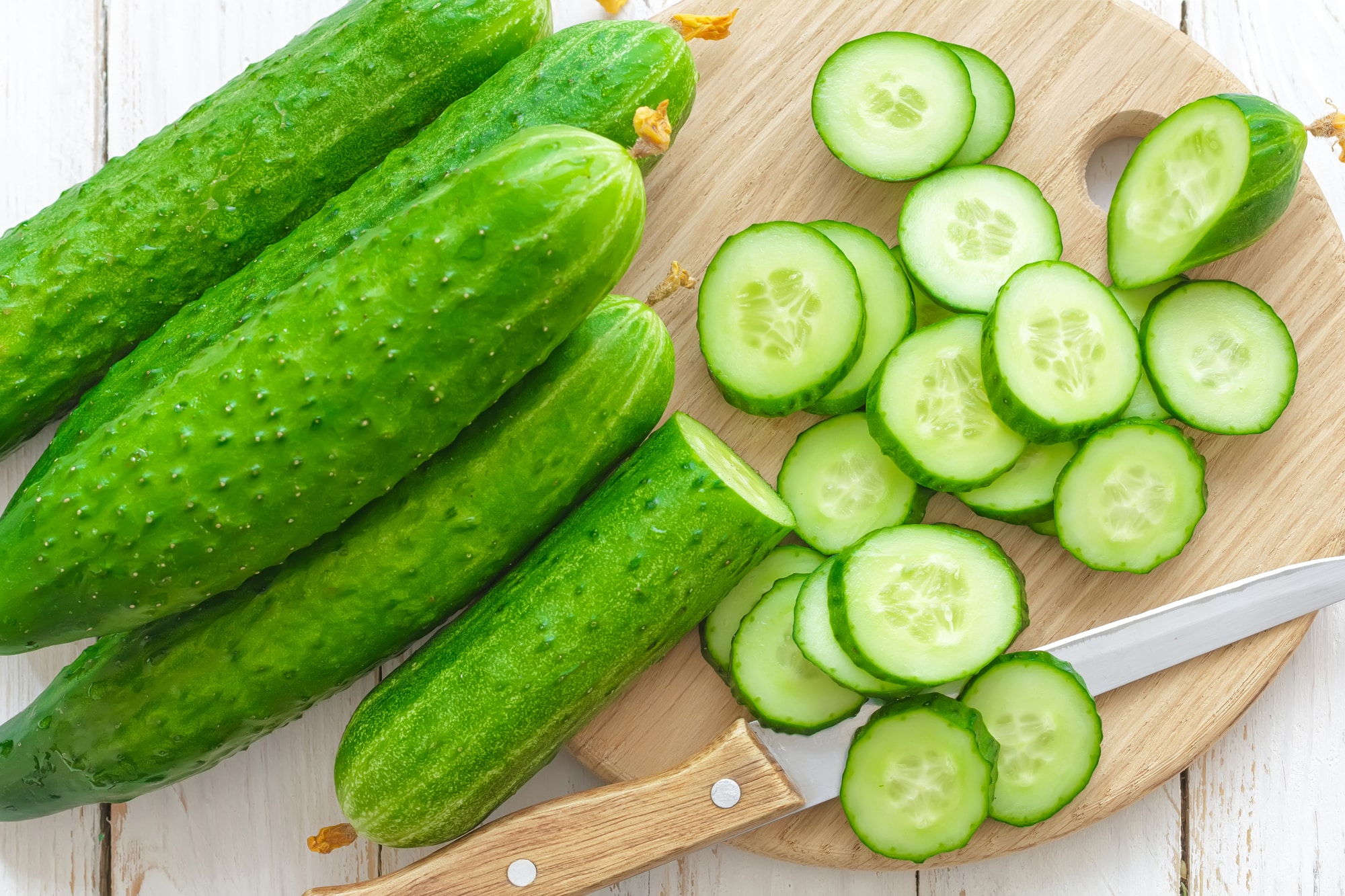 Photo Credit: Depositphotos
Photo Credit: Depositphotos
From healthy skin to improved memory, check out the top 14 health benefits of cucumbers!
And if you’re lucky enough to have a load from your garden or farmers market on hand, you’ll definitely want to check out some of our favorite cucumber recipes, too.
14 Health Benefits of Cucumbers (And a Few Refreshing Recipes)
Walking For Weight Loss | Your 14-Day Plan
 Photo Credit: Depositphotos
Photo Credit: Depositphotos
Guess what, my friends, walking works. Study after study proves that people who walk regularly stay more youthful, stronger, and happier in old age.
To get started, try my free 14-day challenge and get walking for a weight loss plan.
Walking For Weight Loss | Your 14-Day Plan
14 Health Benefits of Cucumbers (And a Few Refreshing Recipes)
 Photo Credit: Depositphotos
Photo Credit: Depositphotos
From healthy skin to improved memory, check out the top 14 health benefits of cucumbers!
And if you’re lucky enough to have a load from your garden or farmers market on hand, you’ll definitely want to check out some of our favorite cucumber recipes, too.
14 Health Benefits of Cucumbers (And a Few Refreshing Recipes)
53 Best Weight Loss Snacks
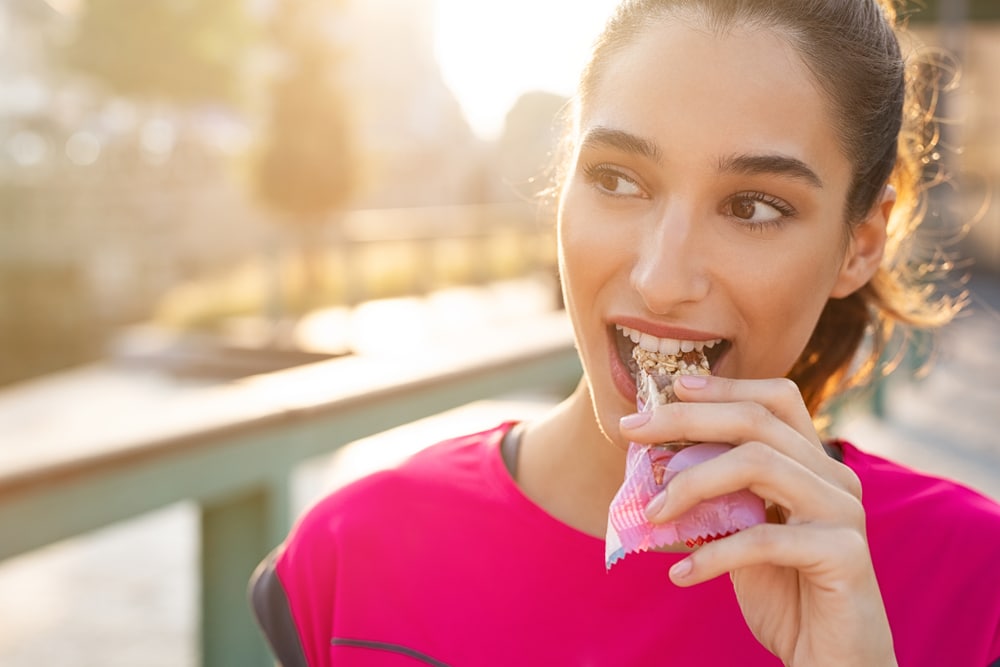 Photo Credit: Shutterstock
Photo Credit: Shutterstock
To keep you from going crazy with calories even when the saltiest of cravings hit, my team and I rounded up our best weight-loss snack recipes that are super easy to throw together.
And when you don’t have time or you’re on the go, we also made a list of our favorite healthy purchased snacks too!
53 Best Weight Loss Snacks
 Photo Credit: Shutterstock
Photo Credit: Shutterstock
To keep you from going crazy with calories even when the saltiest of cravings hit, my team and I rounded up our best weight-loss snack recipes that are super easy to throw together.
And when you don’t have time or you’re on the go, we also made a list of our favorite healthy purchased snacks too!
Walking For Weight Loss | Your 14-Day Plan
 Photo Credit: Depositphotos
Photo Credit: Depositphotos
Guess what, my friends, walking works. Study after study proves that people who walk regularly stay more youthful, stronger, and happier in old age.
To get started, try my free 14-day challenge and get walking for a weight loss plan.
